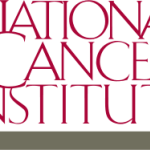- 업종: Government; Health care
- Number of terms: 6957
- Number of blossaries: 0
- Company Profile:
The National Cancer Institute (NCI) is part of the National Institutes of Health (NIH), which is one of 11 agencies that compose the Department of Health and Human Services (HHS). The NCI, established under the National Cancer Institute Act of 1937, is the Federal Government's principal agency for ...
An orally bioavailabe, small-molecule tyrosine kinase inhibitor with potential antineoplastic activity. MET tyrosine kinase inhibitor PF-04217903 selectively binds to and inhibits mesenchymal epithelial transition (MET or c-Met), disrupting the c-Met signaling pathway, which may result in the inhibition of tumor cell growth, migration and invasion of tumor cells, and the induction of death in tumor cells expressing c-Met. The receptor tyrosine kinase c-Met, also known as hepatocyte growth factor (HGF) receptor, is overexpressed or mutated in many tumor cell types, playing an important role in tumor cell proliferation, survival, invasion, and metastasis and angiogenesis.
Industry:Pharmaceutical
An orally bioavailable 2-phenylaminopyrimidine derivative with potential antineoplastic activity. Bafetinib specifically binds to and inhibits the Bcr/Abl fusion protein tyrosine kinase, an abnormal enzyme produced by Philadelphia chromosomal translocation associated with chronic myeloid leukemia (CML). This agent also inhibits the Src-family member Lyn tyrosine kinase, upregulated in imatinib-resistant CML cells and in a variety of solid cancer cell types. The inhibitory effect of bafetinib on these specific tyrosine kinases may decrease cellular proliferation and induce apoptosis in tumor cells that overexpress these kinases. CML patients may be refractory to imatinib, which sometimes results from point mutations occurring in the kinase domain of the Bcr/Abl fusion product. Due to its dual inhibitory activity, the use of bafetinib has been shown to overcome this particular drug resistance.
Industry:Pharmaceutical
An orally bioavailable agent belonging to the class of c-met/hepatocyte growth factor receptor (HGFR) tyrosine kinase inhibitors with potential antineoplastic activity. MET tyrosine kinase inhibitor PF-02341066 inhibits the membrane receptor MET and activation of the MET signaling pathway, which may block tumor cell growth, migration and invasion, and tumor angiogenesis in susceptible tumor cell populations.
Industry:Pharmaceutical
An orally bioavailable allosteric inhibitor of the serine/threonine protein kinase Akt (protein kinase B) with potential antineoplastic activity. Akt inhibitor MK2206 binds to and inhibits the activity of Akt in a non-ATP competitive manner, which may result in the inhibition of the PI3K/Akt signaling pathway and tumor cell proliferation and the induction of tumor cell apoptosis. Activation of the PI3K/Akt signaling pathway is frequently associated with tumorigenesis and dysregulated PI3K/Akt signaling may contribute to tumor resistance to a variety of antineoplastic agents.
Industry:Pharmaceutical
An orally bioavailable anilinophthalazine with potential antineoplastic activity. Vatalanib binds to and inhibits the protein kinase domain of vascular endothelial growth factor receptors 1 and 2; both receptor tyrosine kinases are involved in angiogenesis. This agent also binds to and inhibits related receptor tyrosine kinases, including platelet-derived growth factor (PDGF) receptor, c-Kit, and c-Fms.
Industry:Pharmaceutical
An orally bioavailable antagonist of human insulin-like growth factor type I receptor (IGF-1R) with potential antineoplastic activity. IGF-1R antagonist BMS-7548077 binds to IGF-1R, preventing IGF-1 ligand binding and activation of IGF-1R-mediated signaling pathways; inhibition of IGF-1R-mediated signaling pathways may result in the inhibition of tumor cell proliferation and the induction of tumor cell apoptosis. IGF-1R is a receptor tyrosine kinase expressed on most tumor cells and is involved in mitogenesis, angiogenesis, and tumor cell survival.
Industry:Pharmaceutical
An orally bioavailable antiangiogenic isocoumarin with potential antineoplastic activity. NM-3 inhibits vascular endothelial growth factor (VEGF), a pro-angiogenic growth factor, thereby inhibiting endothelial cell proliferation. This agent also induces apoptosis by a mechanism involving reactive oxygen species.
Industry:Pharmaceutical
An orally bioavailable antimitotic sulfonamide. ABT-751 binds to the colchicine-binding site on beta-tubulin and inhibits the polymerization of microtubules, thereby preventing tumor cell replication. This agent also disrupts tumor neovascularization, reducing tumor blood flow and so inducing a cytotoxic effect.
Industry:Pharmaceutical
An orally bioavailable aqueous solution containing the chloride salt of the radioisotope calcium-41 (41Ca) with phosphate-binding and radioisotopic activities. Upon administration of calcium-41 chloride aqueous solution, calcium-41 is preferentially taken up by osteoblasts, which generate mineralized osteoid containing calcium. Calcium-41 accumulation and turnover in bone can be measured with bone scintigraphy and urinary isotope excretion.
Industry:Pharmaceutical
An orally bioavailable aqueous solution containing the chloride salt of the radioisotope calcium-46 (46Ca) with phosphate-binding and radioisotopic activities. Upon administration of calcium-46 chloride aqueous solution, calcium-46 is preferentially taken up by osteoblasts, which generate mineralized osteoid containing calcium. Calcium-46 accumulation and turnover in bone can be measured with bone scintigraphy and urinary isotope excretion testing.
Industry:Pharmaceutical
